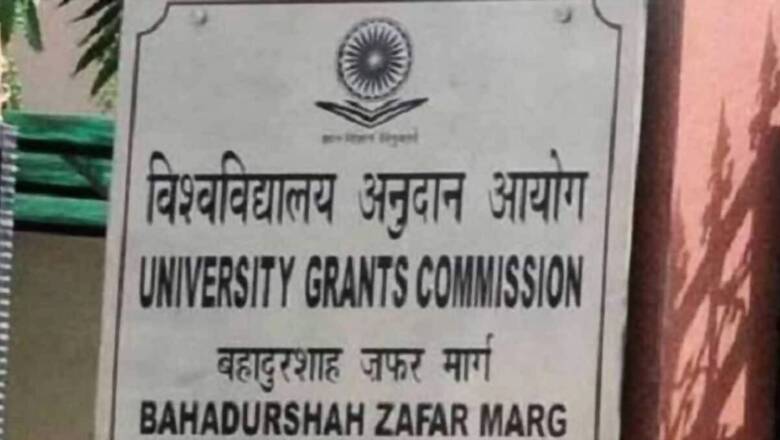
views
The University Grants Commission’s (UGC) anti-ragging helpline answers around 300 calls daily, of which three to four, on an average, are ragging complaints that could be of “serious” nature, according to data compiled by the team that handles the calls.
UGC, the higher education regulator, runs a 24×7 anti-ragging helpline (1800-180-5522), a confidential service that allow students from across India to turn up for help at any time of the day to report incidents of ragging or seek guidance.
According to the UGC’s anti-ragging cell, a vast majority of calls (300 on an average daily) are “general”, including enquiries on filing affidavits (downloading, purpose, verification), university compliance forms (login details, updates) and other helpline regulations and procedures, while the ragging complaints (3-4 on average per day) received by it “can be very serious” and pertain to issues ranging from “mental, sexual harassment to physical abuse”.
UGC chairperson Prof M Jagadesh Kumar said the ragging complaints mostly have students or representatives enquire about how to register a complaint, check on complaint status and tracking procedures as well as seeking guidance on the anti-ragging committee report format.
Most ragging complaints reported on the helpline, he said, include issues faced by new students such as mental harassment (abusive language, name-calling, false accusations, body shaming, and threats related to attendance or grades); physical abuse (some calls involve reports of physical violence, including beatings); social ostracism (being forced to do unnecessary tasks or being excluded from social activities); sexual harassment (any unwelcome sexual advances, comments, or physical contact); extortion (demanding money or valuables from new students; verbal abuse (insults, derogatory language, and other forms of verbal aggression are unacceptable); and substance abuse (being pressured to smoke, drink, or use other substances).
1,240 RAGGING INCIDENTS REPORTED SINCE JAN 1, 2023
The anti-ragging helpline and cell were set up by the UGC on June 20, 2009, after an apex court order.
In December 2023, the UGC issued a notification as a reminder asking higher educational institutions to implement anti-ragging mechanisms on their campuses. This came in the wake of the death of a first-year student at Jadavpur University on August 9, who was subjected to intense ragging, including sexual abuse on campus.
The anti-ragging cell and helpline lends crucial support to students with a dedicated team of eight-nine members who handle calls in three shifts, around-the-clock, throughout the year.
Between January 1, 2023, and April 28, 2024, a total of 1,240 ragging incidents were reported on the helpline, of which 1,113 (89.7%) have been resolved, while it is working to address the 127 active complaints (10.24%), according to UGC data.
Of the incidents 82.18% included male students, 17.74% female and 0.08% transgender.
“The accessible and confidential helpline empowers students to report ragging incidents without fear of retribution. This allows for swift intervention and ensure students’ safety. The robust monitoring system sends a clear message to institutions that ragging will not be tolerated, creating a deterrent effect discouraging potential incidents,” said Kumar.
HOW DOES THE HELPLINE WORK?
As per the Standard Operating Procedure (SOP), the helpline forwards each complaint to the nearest police station and the city’s Superintendent of Police (SP) or Commissioner of Police (CP).
The helpline forwards the complaint to four higher authorities within 15 minutes to 24 hours of the complaint being registered. These authorities include college (principal/director); university (vice-chancellor/registrar); nearest police station; city SP/CP.
“The helpline follows up on cases every day. On an average, 50% of complaints are resolved within a week, while 30% of complaints are resolved in a maximum of 15 working days. These might involve complexities requiring more investigation. The rest of 20% complaints are resolved in 40 days. These are typically the most serious cases that may necessitate police involvement, reinvestigation by the institution, or additional enquiries,” said Kumar.
Also, he added, the helpline closes every ragging complaint upon ensuring the victim’s satisfaction. In case of victims being dissatisfied by the institutions action-taken report, the helpline seeks reinvestigation reports from the college/university. It also ensures that the victim can get their complaint reactive if they again face ragging, however, there are very few cases where a victim may have to reactivate once the complaint has been resolved.
Stay ahead with all the exam results updates on News18 Website.




















Comments
0 comment